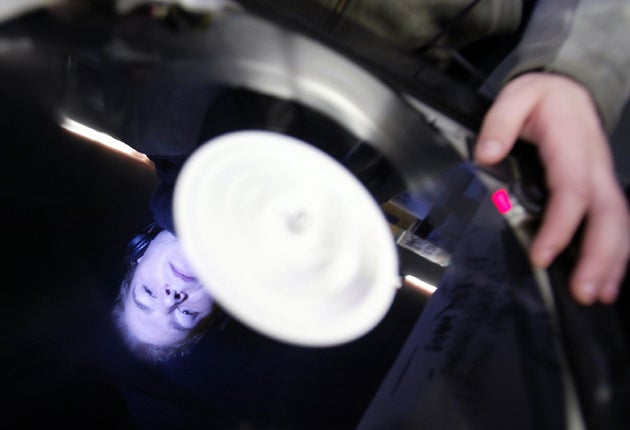Clash fan exposes man who made £1.2m from fake vinyl records
Richard Hutter had been selling counterfeit records over a six-year period
Your support helps us to tell the story
From reproductive rights to climate change to Big Tech, The Independent is on the ground when the story is developing. Whether it's investigating the financials of Elon Musk's pro-Trump PAC or producing our latest documentary, 'The A Word', which shines a light on the American women fighting for reproductive rights, we know how important it is to parse out the facts from the messaging.
At such a critical moment in US history, we need reporters on the ground. Your donation allows us to keep sending journalists to speak to both sides of the story.
The Independent is trusted by Americans across the entire political spectrum. And unlike many other quality news outlets, we choose not to lock Americans out of our reporting and analysis with paywalls. We believe quality journalism should be available to everyone, paid for by those who can afford it.
Your support makes all the difference.A man who made more than £1m selling fake vinyl records was caught out by a fan of The Clash.
Richard Hutter – who has been given a suspended jail sentence – had been selling counterfeit records over a six-year period.
He was uncovered after selling an LP of the British punk band to a fan who then demanded their money back because the sound quality was not as sharp as they thought it should have been.
According to The Guardian, when the refund was refused, the customer complained to trading standards officers, who bought two sample records from Hutter’s website: Appetite for Destruction by Guns N’ Roses, and Songs for the Deaf by Queens of the Stone Age. Both vinyls turned out to be fake.
Hutter’s home address was searched in July 2018 as a result, with officers seizing his phone and laptop, as well as a number of counterfeit records and sleeves.
They discovered that in addition to selling the vinyls on his website, he had been selling through a US website and eBay.
On eBay, he had listed almost 1,200 LPs in the space of one year. Hutter charged customers up to £35 for the counterfeit albums.
Hutter has been given a suspended jail sentence. He was ordered to do 250 hours unpaid work and instructed to wear a tag for three months.

He denied knowledge that he was selling counterfeit records, instead claiming that he had sourced them from Europe. As per the publication, he pleaded guilty to 13 counts of selling counterfeit records and one count under the Proceeds of Crime Act (2002).
He was sentenced at Bournemouth crown court where he was given a four-month prison sentence, suspended for 24 months.
Enjoy unlimited access to 100 million ad-free songs and podcasts with Amazon Music
Sign up now for a 4 month free trial (3 months for non-Prime members)
Enjoy unlimited access to 100 million ad-free songs and podcasts with Amazon Music
Sign up now for a 4 month free trial (3 months for non-Prime members)
In defence of Hutton, his lawyer Andrew Barkley said that his client was “remorseful” for his actions.
The prosecution, Syan Ventom, said: “The offences involved selling and distributing counterfeit items and money laundering. Mr Hutter did not carry out any checks as to the provenance of what he bought and sold.”
Martin Thursby of Dorset Trading Standards said that Hutter was “aware of the increase in popularity [of vinyls] and set up his business to take advantage of that”.
He continued: “The LPs Hutter was selling were generally good copies that came to light because they were bought by avid fans of the music who could spot the small differences which showed the records were counterfeit.”
While sentencing, Recorder Richard Tutt found that Hutter had benefited by £1.2m and that the amount he now had available was £373,000, which he ordered to be paid in a confiscation order.




Join our commenting forum
Join thought-provoking conversations, follow other Independent readers and see their replies
Comments